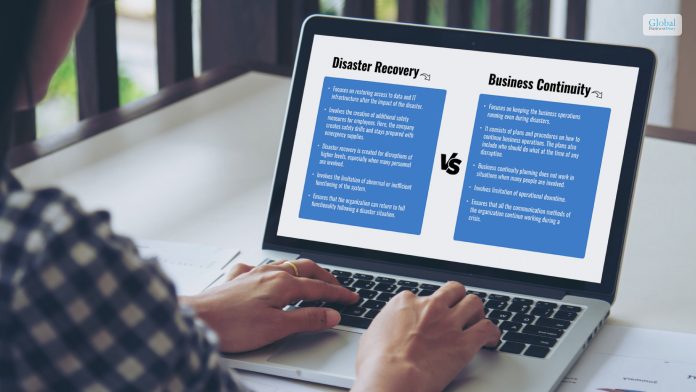12 Passive Income Ideas To Get You Rich In 2023

Some of the major passive income ideas include investing, side hustle, creative work, and more. A passive income is an income that you do not earn, and you generate differently. Passive income puts money in your pocket even when you are not working. You will not need to do active work while you are income passively, unlike the case where you are a traditional employee or a full-time entrepreneur.
In this article, we will discuss different ways to make passive income in 2023 as we give you the twelve best passive income ideas. Along with the passive income ideas, we will also give you a brief explanation of how you can implement the idea for yourself. Hence, to learn about these extra income ideas, read on through to the end of the article.
Passive Income In 2023 – A General Overview

To earn passive income, you will not need to spend a lot of time, money, and resources. According to Forbes.com,
“Passive income helps you earn a little extra. Every penny earned matters, and you can deploy the funds to build an emergency fund, start a systematic investment plan in mutual funds, etc.”
In passive income, you can earn money by doing projects and making products with little work and essentially no maintenance. This is the money that you are earning from the assets that you control. However, you must note here that it requires some effort at the start, but as you progress, you will have little to no effort.
Furthermore, with progress, you will not need to invest a lot of your time. According to an article in Time Magazine,
“The cash stream from sources of passive income requires some upfront work, but once established, takes little to no time to maintain. While it can take some time to see the fruits of your labor pay off with passive income, earning money without regular work is possible.”
Passive income helps to raise your income level by providing you with extra income options. Although there is a small investment in some cases, it is only one-time. You will not need to participate and devote a dedicated number of hours to the work. However, there is a need for maintenance in passive income, which is not a requirement in any regular income.
On a side note, check out some of the best lead management software systems available in 2023 if you are into marketing and sales.
The Best Passive Income Ideas For You In 2023
Here are some of the best passive income strategies that you can tryout if you are looking to start with a passive income in 2023:
1. Dropshipping Business

Although one requires a little cash, you don’t need a lot to start a dropshipping business. Here, to sell a product to a particular customer, you do not need to manage products physically.
2. Blogging

It is the most tried and tested passive income that many people tried and got successful. However, it has a lot of competition. So, if you want success, try to be unique and simple.
3. Printing On-Demand

If you are creative or understand designs, you can start an on-demand print store, as you can monetize your creativity by printing T-shirts, posters, backpacks, mugs, papers, and more.
4. Online Tutorial

If you have knowledge of any subject or skill, you can start an online tutorial regarding the same. You can create video tutorials and create a package for learners to learn from.
5. Selling Digital Products

To sell digital products, you will have to create your assets (digital products) once, and then you can sell the product to as many people as you want with your online business.
6. Dealing With Rental Property

This is an ancient way of having a passive income. However, you will need to have the capital to buy properties that you will rent to others. The income level is also high.
7. Investment In Businesses And Stocks

The most popular source of passive income is investments in stocks and business-related investments. However, investing in stocks requires heavy speculation skills, which you will need to develop.
Off-topic: Are you looking to start a startup? Once you open a startup, you will need to consider having your startup insured. To check the best startup insurance options, click on the given link.
8. Affiliate Marketing

According to Shopify.com,
“a great source of passive income because you earn a commission whenever someone uses your referral link to buy the recommended product or service.”
All you need is to recommend the product.
9. Social Media Influencer

If you are good at social media, and have the confidence to influence a many audiences with your social media content, then this idea can do wonders for you.
10. Starting A YouTube Channel

You can start a YouTube channel about anything that you know. Some of the best ideas, in this case, include – tech reviews, gaming videos, entertainment, tutorials, and many more.
11. Create A Digital Guide

A digital guide can be about anything, from travel guides, tutorials, University suggestions, and more. You can create a digital guide once, and you can sell it to as many people as you like.
12. Design And Sell Websites

If you are a website designer, then you can sell your designs to companies to earn. Furthermore, if you can code, then you can make full-working websites and sell them to customers.
Summing Up
One of the most underrated things about passive income is that it is the result of hard work and repeatedly working on the same thing. The more you work, the better returns it will offer you in the future. Once you add one of these passive incomes to your life, you will have better flexibility in work, more freedom, and better earning. Choose the one that suits your character and skills, and work on it consistently, to ensure future results. Do you have any other passive income ideas that you think can work amazingly in 2023? Share some of them with us in the comments section below.













